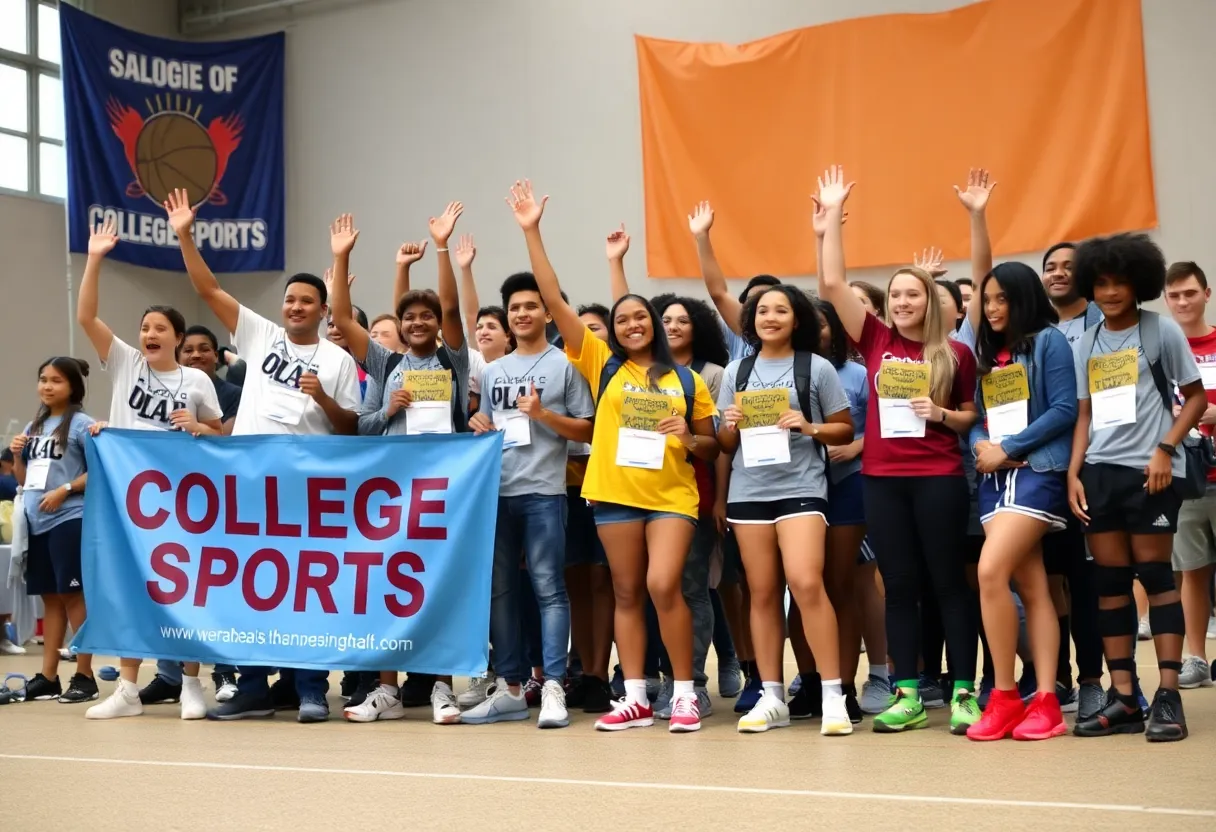News Summary
In a significant ruling, a federal judge has approved a settlement allowing colleges to compensate student-athletes, a move that could distribute $20.5 million in the first year and $2.7 billion over the next decade. This historic decision marks a shift in NCAA sports, providing financial equity and decentralizing power from the NCAA to major athletic conferences. While the approval is seen as a pivotal advancement, concerns remain regarding roster limits and the impact on lesser-known sports and gender equity.
San Francisco, CA – A federal judge has approved a landmark settlement allowing academic institutions to begin compensating student-athletes in a groundbreaking shift in college sports. The decision comes from U.S. District Court Judge Claudia Wilken and is part of the long-awaited “House settlement,” named after Arizona State swimmer Grant House, who filed a lawsuit against the NCAA nearly five years ago.
Starting next month, colleges and universities will be able to distribute up to $20.5 million to athletes within the first year and plan to allocate a staggering $2.7 billion over the next decade to former players who were previously prohibited from receiving shares of revenue. The approval represents a critical step toward financial equity for student-athletes in NCAA sports.
Judge Wilken’s decision resolved issues that had delayed the agreement, particularly those related to roster limits placed on teams. The settlement aims to stabilize the financial landscape of college athletics, following a significant ruling in 2014, which allowed athletes to benefit from their name, image, and likeness (NIL). This earlier decision provided a foundation for the current changes, as college sports adapt to evolving economic realities.
With the introduction of this settlement, control over compliance and enforcement is now largely transferred from the NCAA to the four major athletic conferences: the Atlantic Coast Conference (ACC), Big Ten, Big 12, and Southeastern Conference (SEC). These conferences are responsible for developing guidelines concerning revenue-sharing and athlete compensation, marking a significant decentralization of power within college sports.
Colleges are now tasked with preparing for the financial implications of this settlement, particularly as they navigate how to effectively manage payments while adhering to new enforcement standards. There is growing concern among athletic departments that some walk-on athletes may lose their spots, with many institutions preemptively reducing these positions in anticipation of revised roster limitations. Nevertheless, modifications in the settlement allow affected players, referred to as “Designated Student-Athletes,” to return to their initial institutions or transfer without affecting the new roster limits.
NCAA President Charlie Baker heralded the settlement as a pivotal advancement for college athletics, envisioning a more equitable future for student-athletes. While legal experts express optimism about the uniformity this agreement is likely to bring, they also caution that the possibility of additional litigation remains high, particularly related to variations in state laws concerning NIL payments.
In terms of financial distributions, the settlement raises the potential for plaintiffs in antitrust cases against the NCAA to receive up to $10 billion. However, a large share of the revenue-sharing funds is expected to be concentrated on football and basketball players, which may inadvertently create disparities for athletes participating in less prominent sports.
Moreover, questions linger regarding how such financial arrangements will influence Olympic sports and address gender equity issues in compliance with Title IX. This agreement may significantly impact the collegiate sports landscape, resulting in ongoing discussions about how to balance investments and opportunities across various sports disciplines.
As athletic programs prepare for these changes and their consequences, University of North Carolina athletic director Bubba Cunningham emphasized that the long-term effects of this ruling on collegiate athletics remain uncertain. Stakeholders will closely monitor the implementation of the settlement in hopes of fostering a more equitable playing field in college sports.
Deeper Dive: News & Info About This Topic
HERE Resources
Additional Resources
- Sports Illustrated
- ESPN
- CBS Sports
- Write for California
- Encyclopedia Britannica: Paying College Athletes

Author: STAFF HERE MISSION VIEJO WRITER
The MISSION VIEJO STAFF WRITER represents the experienced team at HEREMissionViejo.com, your go-to source for actionable local news and information in Mission Viejo, Orange County, and beyond. Specializing in "news you can use," we cover essential topics like product reviews for personal and business needs, local business directories, politics, real estate trends, neighborhood insights, and state news affecting the area—with deep expertise drawn from years of dedicated reporting and strong community input, including local press releases and business updates. We deliver top reporting on high-value events such as Oso Fit 5K Fun Run and Community Health Fair, Walk Against Drugs & Community Fair, and National Night Out. Our coverage extends to key organizations like the Mission Viejo Chamber of Commerce and Providence Mission Hospital Mission Viejo, plus leading businesses in retail and education that power the local economy such as The Shops at Mission Viejo, Capistrano Unified School District, and Amazon Delivery Station. As part of the broader HERE network, including HEREAnaheim.com, HEREBeverlyHills.com, HERECostaMesa.com, HERECoronado.com, HEREHollywood.com, HEREHuntingtonBeach.com, HERELongBeach.com, HERELosAngeles.com, HERESanDiego.com, and HERESantaAna.com, we provide comprehensive, credible insights into California's dynamic landscape.


